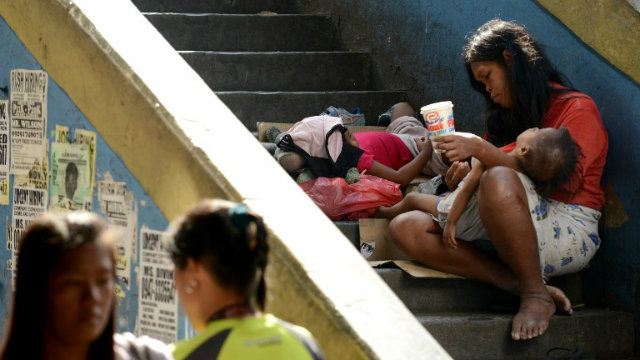SUMMARY
This is AI generated summarization, which may have errors. For context, always refer to the full article.

MANILA, Philippines – A 12-year-old Norwegian girl is set to walk down the aisle to marry a man thrice her age today, October 11.
Thea, Norway’s first child bride, shares on her blog her wedding preparations she’d undertaken with her husband-to-be, 37-year-old Geir. From cake tasting to trying her bridal gown, the girl consistently updates her online journal to give everyone a glimpse of her life.
The blog, originally written in the country’s national language, did not sit well with readers from around the globe. Social media erupted with debates centered on Thea’s future. Meanwhile, a lot of people contacted police and Norway’s child welfare unit to prevent the exchange of “I dos” by the unlikely couple.
Fortunately, International children’s welfare organization Plan International Norway revealed that everything was just a social media campaign and all photos were staged. Dubbed as #StopTheWedding, it aims to encourage people to help fight for children’s rights, especially girls’.
“We believe that provocation is a powerful tool in order to demonstrate a reality that truly is very provoking,” National Director of Plan International Norway Olaf Thommessen wrote in a statement.
Thea’s wedding, although made-up, is reflective of the disturbing reality that more than 39,000 underage girls get married each day – mostly against their will – and stripped off their rights to enjoy their childhood.
“Many girls dream about their wedding day and this day is often referred to as one of the happiest days of their lives,” Plan International Norway said on their website. “But for 39,000 young girls who get married every day, their wedding day is the worst day of their life.”
The campaign coincided with the United Nation’s International Day of the Girl. Adopted through Resolution 66/170 in 2011, the UN General Assembly declared every 11th of October as a day to highlight and recognize the rights of girls and the challenges they are facing in all parts of the world such as discrimination and violence.
Child marriage is just one of the numerous challenges and problems adolescent girls all over the world face each day. These prevent them from attaining their maximum potential in life due to the complications that come in their way.
Education is key in PH situation
Although child marriages in the country may not be rampant, Plan Philippines said that poverty and teenage pregnancy have hindered the positive growth of Filipino adolescent girls. (IN PHOTOS: Teenagers raising kids)
Philippine Statistical Data in 2014 showed that 24 babies are born to teenage mothers every hour. (VIDEO: Children bearing children)
Meanwhile, the latest Young Adult Fertility and Sexuality (YAFS) Study revealed that almost 14% of Filipino girls aged 15 to 19 are either currently pregnant or are first-time mothers.
The National Youth Commission (NYC) is now advocating for better adolescent sexual and reproductive health (ASRH) education to control the “alarming” situation. (READ: Urgent response needed to address teenage pregnancy)
Dr Tanjina Mirza of Plan International Canada believes giving access to education is the key to ending teenage pregnancy.
“The most effective contraceptive is girls’ education,” she emphasized. “When a 15-year-old girl gets married and has a child, it is most likely that a lot of opportunities are killed.”
However, the poverty situation in the Philippines paved the way for adolescent girls to drop out of school. In most cases, instead of studying, they resort to find ways to put food on the table and not be hungry when they go to sleep.
According to Plan International Philippines’ country director Carin Van Der Hor, poverty has become the biggest discriminator in the Philippines. One in every 5 girls drop out of school to help alleviate her family’s situation by working.
Those educated, she added, are least likely to get pregnant at a young age and have better access to sex education in educational institutions. They are least likely to put their education to the side in favor of domestic duties and other roles in the family. (READ: Young, pregnant, and poor)
“Poor families are burdened to make a choice whether to send their children to school or ask them to help make a living,” Van Der Hor explained. “Most of the time, they have no choice at all.”
The health of these girls is also at risk as being pregnant at an early age exposes them to life-threating scenarios. They also contribute to the cycle of malnourishment. (READ: Hungry and pregnant in the Philippines)

“It is not healthy for a young girl suffering from poverty to be a mother at age 14,” Van Der Hor added.
The latest national nutrition survey of the Food and Nutrition Research Institute (FNRI) showed one in every 3 Filipino mothers aged 20 years old and below is more nutritionally-at-risk. Their babies, FNRI emphasized, are also at risk because they lack the proper nutrients needed for a healthy body.
Empowering girls
Plan International Philippines, in partnership with Dubai Cares, launched the Real Assets Through Improved Skills and Education for Adolescent Girls or simply the RAISE project which aims to promote transformative education.
The project seeks to ensure marginalized children and adolescents, especially girls, are able to make the most of their lives to prepare for a better future. This, according to Van Der Hor, can be achieved through education.
“This will help girls make informed life choices,” she explained. “I hope that their trajectory in life will lead to better opportunities.”
At least 10,000 people will benefit from the project’s various programs such as financial support through primary and secondary school, and even access to Alternative Learning System (ALS) for those who are already parents but want to continue their studies. RAISE will even provide free daycare facilities for their children.
The project’s target areas are Masbate and Northern Samar, two places falling behind because of extreme poverty. According to the Philippine Statistical Authority, the poverty incidence in the two areas are 42% and 43%, respectively.
Both areas also registered a drop-out rate in secondary school of 10%, way above the national average of 6%.
According to Plan International Philippines, most of the girls who stop schooling become prone to “more domestic activities, work in the informal economy, low wages, and risk of various forms of exploitation.”
The group target beneficiaries will comprise 70% girls because they are most likely to experience gender-based violence, traditional stereotypes, and unintended pregnancy. (READ: Teenage pregnancy: Untangling cause and effect)
“The large gap in education and economic participation between boys and girls are detrimental to development,” Dubai Cares Chief Executive Officer Tariq Al Gurg emphasized. “Through RAISE, we are providing an opportunity for girls to acquire a broad set of livelihood prospects in the future.”
Ending everything
By empowering girls from the poorest sectors of the country and giving them access to better life choices, the effects will be inter-generational. (READ: Ending the malnutrition cycle)
The cycle of poverty they’ve grown accustomed to will end and better opportunities can lead to a hopeful future not just for the young women, but also their respective families.
To achieve this, it is important that everyone takes part in the process. (READ: #HungerProject: Collaboration key to ending hunger in the PH)
“If we are the only ones to do this, it will be just a dent in the world,” Van De Hor said. “Ending the cycle of poverty and empowering girls should be a collaboration among the people of the world, of the Philippines.” – Rappler.com
Add a comment
How does this make you feel?
There are no comments yet. Add your comment to start the conversation.